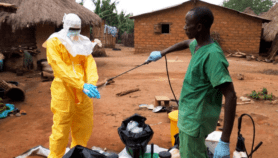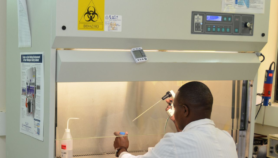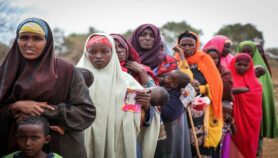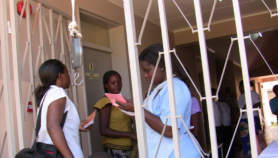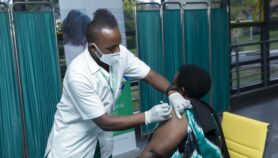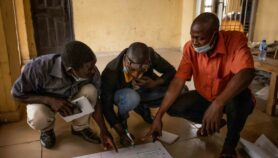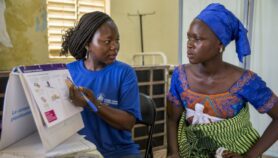27/07/20
COVID-19 is independent South Africa’s ‘gravest crisis’
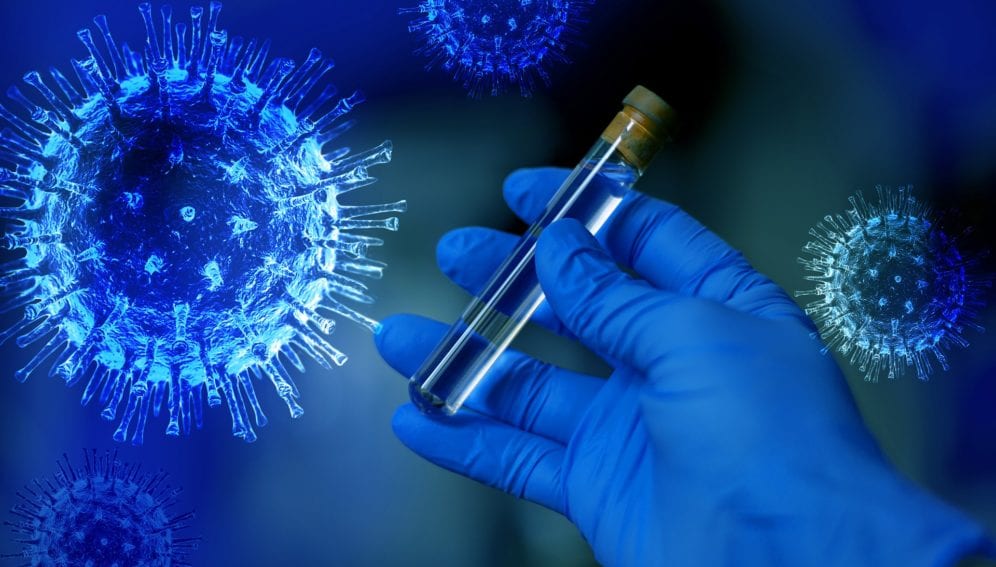
By: Laura Owings
Send to a friend
The details you provide on this page will not be used to send unsolicited email, and will not be sold to a 3rd party. See privacy policy.
[CAPE TOWN] COVID-19 has presented South Africa with the gravest crisis in the history of its democracy, according to the country’s President Cyril Ramaphosa.
As South Africa grapples with an already burdened healthcare system, densely populated cities and a stark socio-economic divide, its disease response is under scrutiny.
Gauteng Province, the country’s most densely populated region, has become South Africa’s virus epicentre, passing the 100,000-case mark on 14 July.
In a national address this month (12 July), Ramaphosa said that an anticipated surge in infections had arrived, with over 12,000 new cases identified every day.
"The storm is upon us," he said.
The figures are a concerning increase from the nearly 4,800 cases South Africa reported in April when the country entered a hard lockdown.
Three months later in July, South Africa surged to eighth in the world for total confirmed cases, exceeding that of Italy and the United Kingdom. While its case fatality ratio remained 1.4 per cent, the virus’ rapid spread has alarmed public health experts.
“The storm is upon us.”
President Cyril Ramaphosa
“South Africa was spared a dramatic overwhelming of the health system within weeks of COVID-19 being on the horizon because we responded early,” says Andrew Boulle, professor of public health medicine at South Africa-based University of Cape Town.
But the numbers began to rise just when restrictive measures began to relax. South Africa significantly eased its lockdown on 1 June.
“Where other countries found themselves in the throes of explosive growth and introduced interventions, which many believe were the reason for the subsequent curtailment of the increase of infections, we are experiencing the growth stage in a much less restrictive environment,” Boulle explains.
As of today, South Africa had recorded 445,433 COVID-19 cases and 6,769 deaths, according to the World Health Organization Region Africa dashboard report on the pandemic.
“This is a worrying trend,” says Richard Mihigo, deputy manager for the COVID-19 response for the WHO Regional Office for Africa. “We’re working with [the] government to ensure the healthcare system can cope with the number of cases that are coming, which will potentially need intensive care in a system that may have already been under pressure.”
“The government will need to double efforts in public health and social support to ensure that people living in underprivileged areas get access to preventative measures that make sure they are protected,” he adds.
Martin Veller, dean of the Faculty of Health Sciences at the University of the Witwatersrand in South Africa, tells SciDev.Net that the pandemic has the potential to spread rapidly in South Africa’s lower socio-economic communities.
Between 2.9 and 3.6 million South Africans are reported to be living in crowded informal settlements and these communities are also at higher risk for medical conditions such as obesity, diabetes, HIV and TB that complicate the COVID-19 outcome.
Epidemics in their own right, HIV and TB are “caught in the crossfire” of COVID-19, adds Linda-Gail Bekker, deputy-director of the Desmond Tutu HIV Centre at the University of Cape Town.
Bekker suggests a need for a nuanced approach to the COVID-19 response to protect vulnerable groups, and limit COVID-19’s spread without intensified lockdown measures.
“We may need to move to community education, involvement and participation to bring about a more sustained, integrated, symbiotic relationship with COVID-19,” she says.
This piece was produced by SciDev.Net’s Sub-Saharan Africa English desk.


